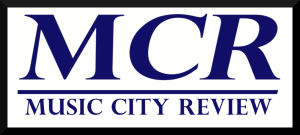At the Public Library
Intersection Celebrates Black History Month
I’ve been to a lot of concerts. I’ve seen Beethoven Symphonies and Handel Oratorios. I’ve laughed at Papageno in The Magic Flute and held back tears as Mimi dies in La bohème . I’ve sat quietly through four minutes and thirty-three seconds of silence and been bathed in the cacophonies of Varèse. On more than one occasion I have seen Bach Inventions performed on Boomwhackers. Today, as I took my seat in the auditorium of the Nashville Public Library, I realized that I was about to witness something I had never seen: a piece of Western Art Music written by a composer of color.
In celebration of Black History Month, Intersection (under the direction of Maestro Kelly Corcoran) has programmed an entire series of concerts which exclusively feature music by Female African American composers – namely Florence Price and Nkeiru Okoye.
Today’s program included selections from Okoye’s opera, Harriet Tubman – When I Crossed That Line To Freedom (2014). The work chronicles the life of Harriet Tubman (played by Soprano Brooke Davis) as she makes her way from a sickly slave girl to the leader of the Underground Railroad. The role of Rachel – Tubman’s Sister – was played by Tamica Harris (Soprano), and Charles Edward Charlton (Baritone) served double duty as both Harriet’s husband John and Father Ben. Corcoran led a piano sextet in accompaniment, and narration was provided by Tasneem Ansariyah Grace, Associate Director of the Nashville Public Library.
Notable moments from the selections included I Want A Man, wherein a young Rachel (expertly sung by Harris) espouses her wish to marry and raise children. This piece foreshadows the character’s coming inner battle: to flee slavery or stay with her family. Nothing But The Grave – a duet between Harriet and Rachel – demonstrated not only the deep bond between two sisters but also the operatic mastery of the two performers. Brown Skin Gal , which was described by Charlton as “an ode to Black Women,” gave the singer an opportunity to show off his powerful voice, along with his fearless ability to engage an audience.
The show-stopper of the afternoon was the final selection, I Am Moses, The Liberator. This aria’s libretto was modeled after the famous Tubman quote: “If you hear the dogs, keep going. If you see the torches in the woods, keep going. If there’s shouting after you, keep going. Don’t ever stop. Keep going. If you want a taste of freedom, keep going.” and portrayed Harriet confronting a slave who, after deciding to flee, voices his desire to turn back. Davis delivered an emotional moment that truly encapsulated the strength and passion of one of history’s most heroic characters (and hit a high G that would knock your socks off).
American History is filled with a myriad of laudable African American figures: King, Douglass, X, Marshall, Parks, Dubois, Washington, and Hughes – just to name a few. Tubman, beyond a shadow of a doubt, belongs in this pantheon. I left today’s performance feeling inspired and grateful to have witnessed the honoring of a legacy that continues to provide light to a people who have, time and time again, been so unfairly and overwhelmingly marginalized in this country.
Later this month Intersection will host two additional concerts. The first will occur at 7 pm on Saturday, February 15th at Fisk Memorial Chapel. Entitled “Upon These Shoulders – From the Back of the Bus”, the program will honor the legacy Dr. Martin Luther King Jr. and many other heroes of the Civil Rights Movement. Florence Price’s Four Negro Songs In Counterpoint will serve as the concert’s centerpiece. The final event – simply named “Journey” – will include a performance of Price’s Spring Journey by The Women’s Chorus from MTSU. Additionally, “Journey” includes a discussion between Indiana University’s Dr. Alisha Jones and Vanderbilt’s Dr. Douglas Shadle, which will focus on the unique voices of Okoye and Price. This event will take place at 7:30 pm on Thursday, February 27th on campus at Vanderbilt’s Blair School of Music.
I would strongly suggest making room in your calendar for one (or both) of these events. Not only will you hear enjoyable music executed on a high level and have the opportunity to engage in responsible discussion on African American history, you will also witness one of the rarest things in Classical Music: a piece not written by a dead white guy.



